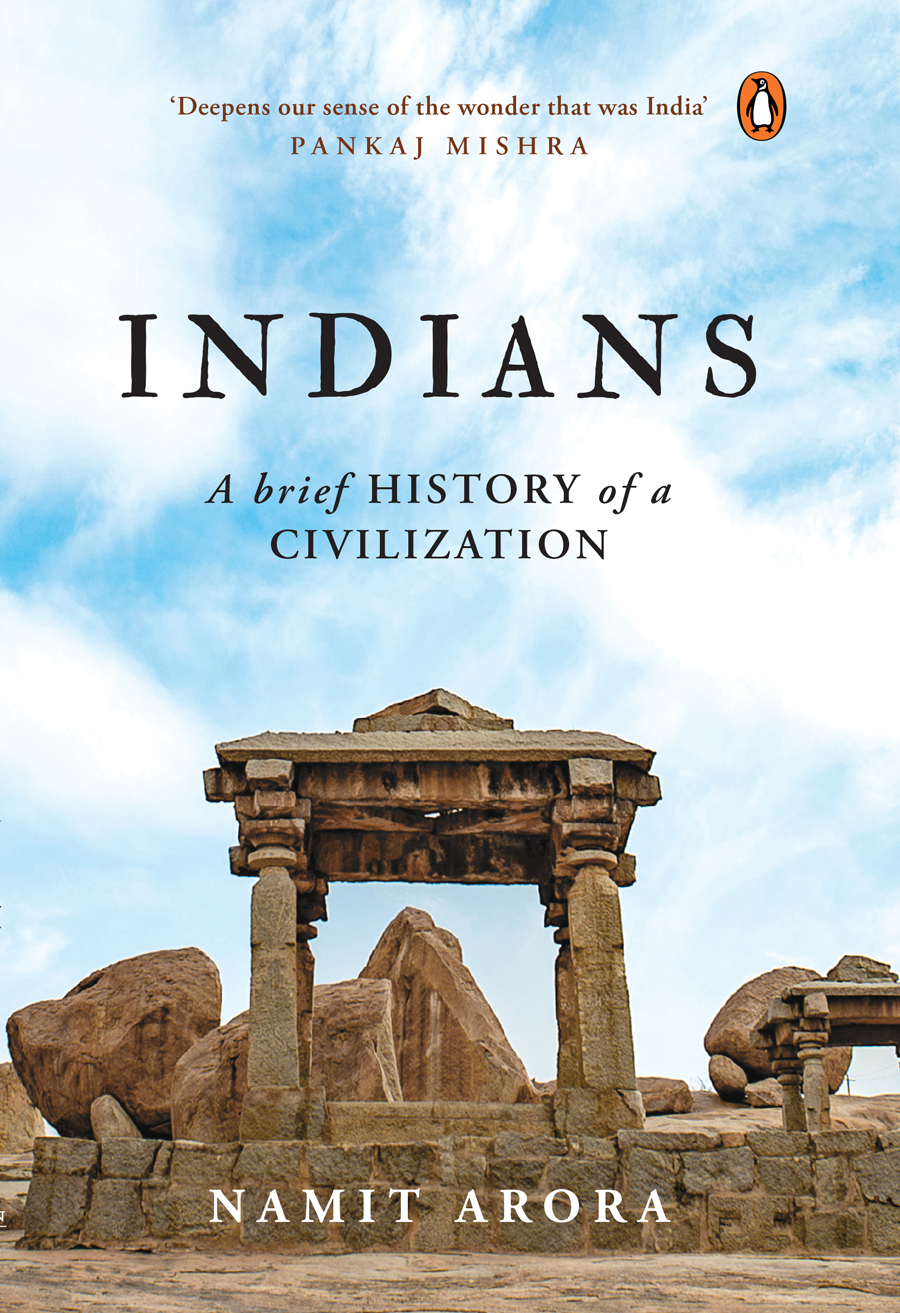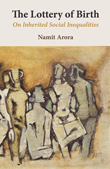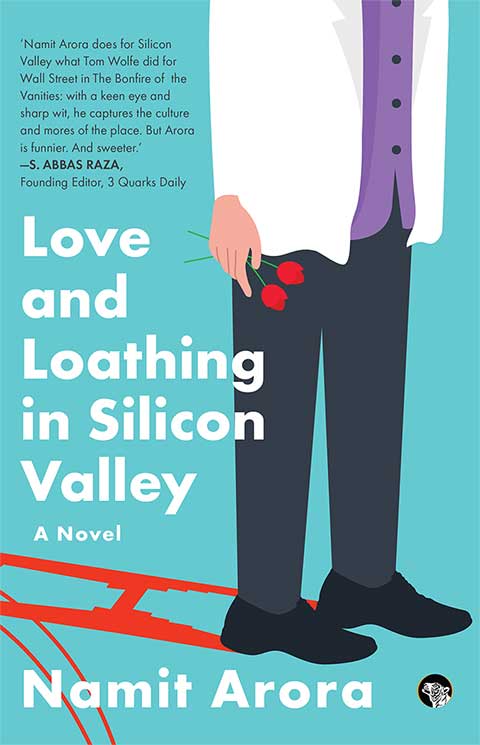| Index of articles from the Blog |
| Animals |
| Anthropology & Archaeology |
| Art & Cinema |
| Biography |
| Books & Authors |
| Culture |
| Economics |
| Environment |
| Fiction & Poetry |
| History |
| Humor |
| Justice |
| Philosophy |
| Photography |
| Politics |
| Religion |
| Science |
| Travel |
Books by
Books by
|
By Namit Arora | Mar 2011 | Comments
(First published in 3 Quarks Daily, the updated version below then appeared in the Humanist, and later in four college anthologies in the U.S.: Sage Publications, McGraw-Hill, and two from Bedford/St. Martin's (one, two).)
The dominant narrative has it that I was a bright student, worked harder than most, and competed fairly to gain admission to an Indian Institute of Technology, where my promise was recognized with financial aid from a U.S. university. When I took a chance after graduate school and came to Silicon Valley, I was justly rewarded for my knowledge and labor with a measure of financial security and social status. While many happily accept this narrative, my problem is that I don’t buy it. I believe that much of my socioeconomic station in life was not realized by my own doing, but was accidental or due to my being at the right place at the right time. A pivotal question in market-based societies is ‘What do we deserve?’ In other words, for our learning, natural talents, and labor, what rewards and entitlements are just? How much of what we bring home is fair or unfair, and why? To chase these questions is to be drawn into the thickets of political philosophy and theories of justice. In this short essay, inspired by American political philosopher Michael Sandel’s Justice, I have tried to synthesize a few thoughts on the matter by reviewing three major approaches to distributive economic justice: libertarian, meritocratic, and egalitarian, undermining en route the dominant narrative on my own well-being.
Three Models of Distributive Justice
Take my own example. I was born into the upper-caste, riding on eons of unearned privilege over 80 percent of Indians. I was a boy raised in a society that lavished far more attention on boys. My parents fell closer to the upper-middle class, had university degrees, and valued education and success—both my grandfathers had risen up to claim senior state government posts. I lived in a kid-friendly neighborhood with parks, playgrounds, and a staff clubhouse. I had role models and access to the right schools and books, the right coaching classes, and peers aspiring for professional careers. My background greatly shaped my ambition and self-confidence and no doubt put me ahead of perhaps 96 percent of other Indians—the odds that I would perform extremely well on standardized academic tests were huge from the start. The meritocratic model, often associated with the United States, recognizes such inequities and tries to correct for socioeconomic disadvantages. At its best, meritocracy takes real equality of opportunity seriously and tries to achieve it through various means: Head Start programs, education and job training, subsidized healthcare and housing, and so forth. Meritocrats admit that market-based distribution of rewards is just only to the extent to which we can reduce endemic socioeconomic disadvantages and bring everyone to comparable starting points. But thereafter, they believe that we are the authors of our own destiny and whoever wins the race is morally deserving of the rewards they obtain from the market—and its flip side, that we morally deserve our failure too, and its consequences. Swiss writer Alain de Botton looked at this phenomenon in the United States in his 2004 documentary film, Status Anxiety.
But how can a system of distributive justice compensate for random natural gifts that happen to be valued in a time and place? We cannot level natural gifts across people, can we? The mere thought is bizarre. The American political philosopher John Rawls (1921-2002) had much to say about this in his landmark 1971 book, A Theory of Justice, in which he developed his egalitarian model. Since we cannot undo the inequities of the natural lottery, he writes, we must find a way to address the differences in the rewards that result from them. We should certainly encourage people to hone and exercise their aptitudes, he says, but we should be clear that they do not morally deserve the rewards their aptitudes earn from the market. Since their natural gifts are not their own doing, and are moreover profitable only in light of the value a community places on them, they must share the rewards with the community. One might object here: Wait a minute, what about the role of the personal drive and effort we put into cultivating our talents? Do we not deserve the rewards that come from our striving? Not really, says Rawls. Countless factors beyond our choosing influence our ambition and effort, such as our upbringing, our family’s work ethic, our childhood experiences, subconscious insecurities, social milieu, career fads, role models, parental and peer pressure, available life paths, lucky breaks, and other contingent factors. It is not clear how much of it is our own doing, however militantly we may hold the illusion that we create our own life story (an illusion not without psychological and practical payoffs). Even the accident of being firstborn among siblings can be a factor in how hard we strive. Each year, Sandel reports, 75-80 percent of his freshman class at Harvard are firstborns. Besides, effort may be a virtue but even the meritocrats do not think it deserves rewards independent of results or achievement. So, in short, we cannot claim to deserve the rewards on the basis of effort either. Rawls deflates the idea that we morally deserve the rewards of meritocracy. If we accept this, it follows that the house of distributive justice cannot be built on the sands of moral desert (which, in simple terms, is a condition in which we are deserving of something, whether good or bad), but must be built on other grounds. [2] Notably, however, Rawls does not make a case for equal rewards. Instead, Rawls speaks of the ‘Difference Principle’ in dealing with the inequities of the natural lottery. This principle, says Sandel, ‘permits income inequalities for the sake of incentives, provided the incentives are needed to improve the lot of the least advantaged.’[3] In other words, income inequality is justified only to the extent to which it improves the lot of the most disadvantaged when compared to an equal income arrangement. Only if society is better off as a whole does favoring inequality seem fair.[4]
Choosing the Rules of the Game One might ask: Why should we uphold the Difference Principle at all? Is it not an arbitrary construct? No, says Rawls, and invites us to a thought experiment on creating ‘a hypothetical social contract in an original position of equality’. Imagine, he says, that ‘when we gather to choose the principles [for governing ourselves], we don’t know where we will wind up in society. Imagine that we choose behind a "veil of ignorance" that temporarily prevents us from knowing anything about who we are’, including our race, gender, class, talents, intelligence, wealth, religion, etc.[5] What principles would we then choose to order our society? Rawls makes a powerful case that simply out of a desire to minimize our odds of suffering, we will always choose political equality, fair equal opportunity, and the Difference Principle.
Sandel’s basic critique here is that Rawls’ concern with the distribution of primary goods—which Rawls defines as ‘things that every rational man is presumed to want’—is necessary but not sufficient for a social contract. As purposive beings, we should also consider the telos of our choices, such as our common ends as a community, the areas of life worth shielding from the market, the space we should accord to loyalty and patriotism, ties of blood, marriage, and tradition, etc. Still, Rawls’ thought experiment retains a powerful moral force and continues to inspire liberals. His theory of justice, writes Sandel, ‘represents the most compelling case for a more equal society that American political philosophy has yet produced.’[8] Theories of justice may clarify and guide our thoughts, but we still have to figure out how to change the game we want to play and where to draw the lines on the playing field. An open society does this through vigorous public debate. As British philosopher Isaiah Berlin wrote, ‘people who want to govern themselves must choose how much liberty, equality, and justice they seek and how much they can let go. The price of a free society is that sometimes, perhaps often, we make bad choices.’ Thereafter, when the rules are in place, ‘we are entitled to the benefits the rules of the game promise for the exercise of our talents’.[9] It is the rules, and not anything outside them, that create ‘entitlements to legitimate expectations’. Entitlements only arise after we have chosen the rules of the competition. Only in this context can we say we deserve something, whether admission to a law school, a certain bonus, or a pension. In Rawlsian terms, the problem in the United States is not that a minority has grown super rich, but that for decades now, it has done so to the detriment of the lower social classes. The big question is: why does the majority in a seemingly free society tolerate this, and even happily vote against its own economic interests? A plausible answer is that it is under a self-destructive meritocratic spell that sees social outcomes as moral desert—a spell at least as old as the American frontier but long since repurposed by the corporate control of public institutions and the media: news, film, TV, publishing, and so forth. It parallels a religious spell in more ways than one. Here too, powerful social institutions are invested in clouding our notions of cause and effect. Rather than move towards greater fairness and egalitarianism, they promote a libertarian gospel of the free market with minimal regulation, taxation, and public safety nets. They beguile us into thinking that the lifestyles of the rich and famous are within reach of all, and uphold rags-to-riches stories as exemplary (‘if this enterprising slumdog can do it against all odds, so can you!’ goes the storyline). All this gets drummed into people’s heads to the point that they only blame themselves for their lot and don’t think of questioning the rules of the game.
Notes:
Images (in the order of appeareance):
|
Designed in collaboration with Vitalect, Inc. All rights reserved. |
|








